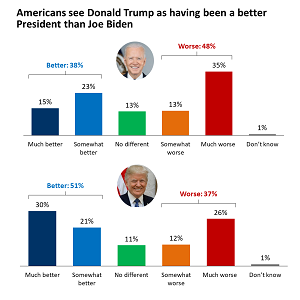
Canadians like to think that when George H. W. Bush talked about a kinder, gentler nation, he was talking about Canada. But recent results from INNOVATIVE’s two-nation study of values and politics in Canada and the US with 2,771 eligible Canadian voters and 2,435 registered US voters suggests Canadians may want to reconsider their assumptions.
- Donald Trump and Justin Trudeau have very similar job approval numbers. Almost half of Canadian voters (48%) approve of the job Justin Trudeau is doing while 46% of American voters approve of the job Donald Trump is doing. Trump’s numbers get a boost from more positive economic perceptions in America compared to Canada.
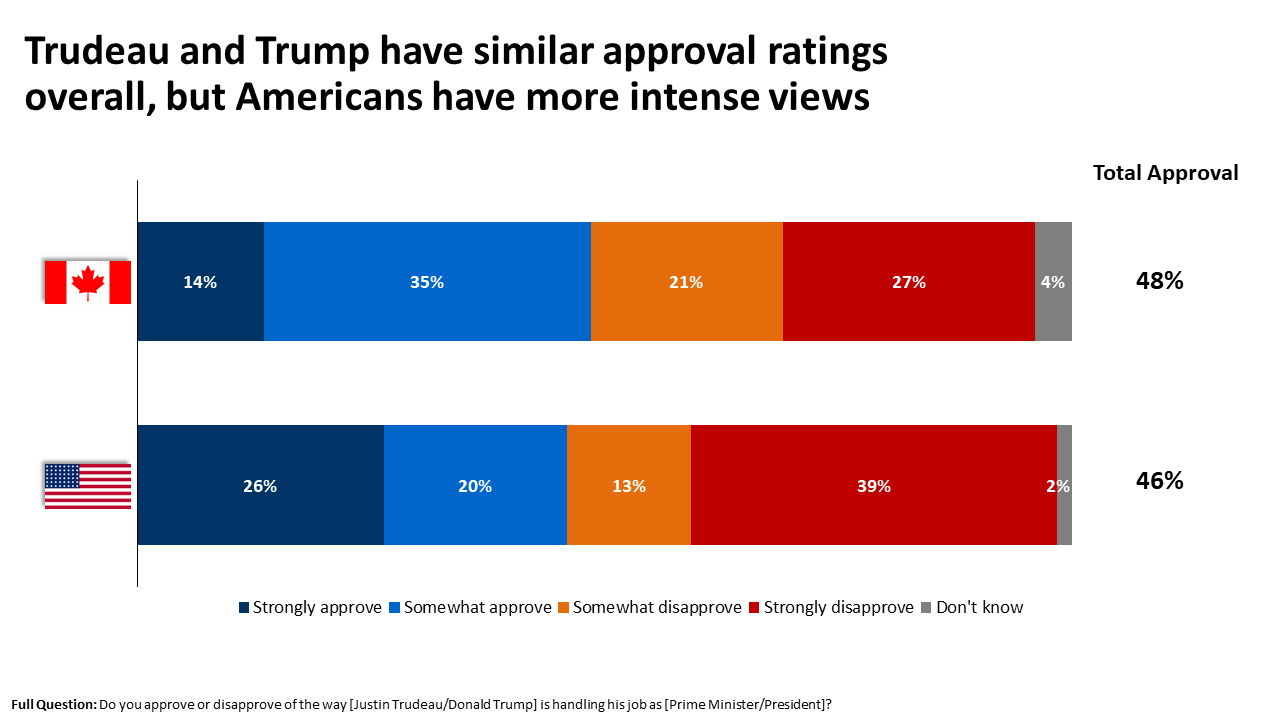
- Americans (51%) are more likely to believe they can make a difference in politics than Canadians (46%). Americans are actually less politically alienated today than they were four years ago.
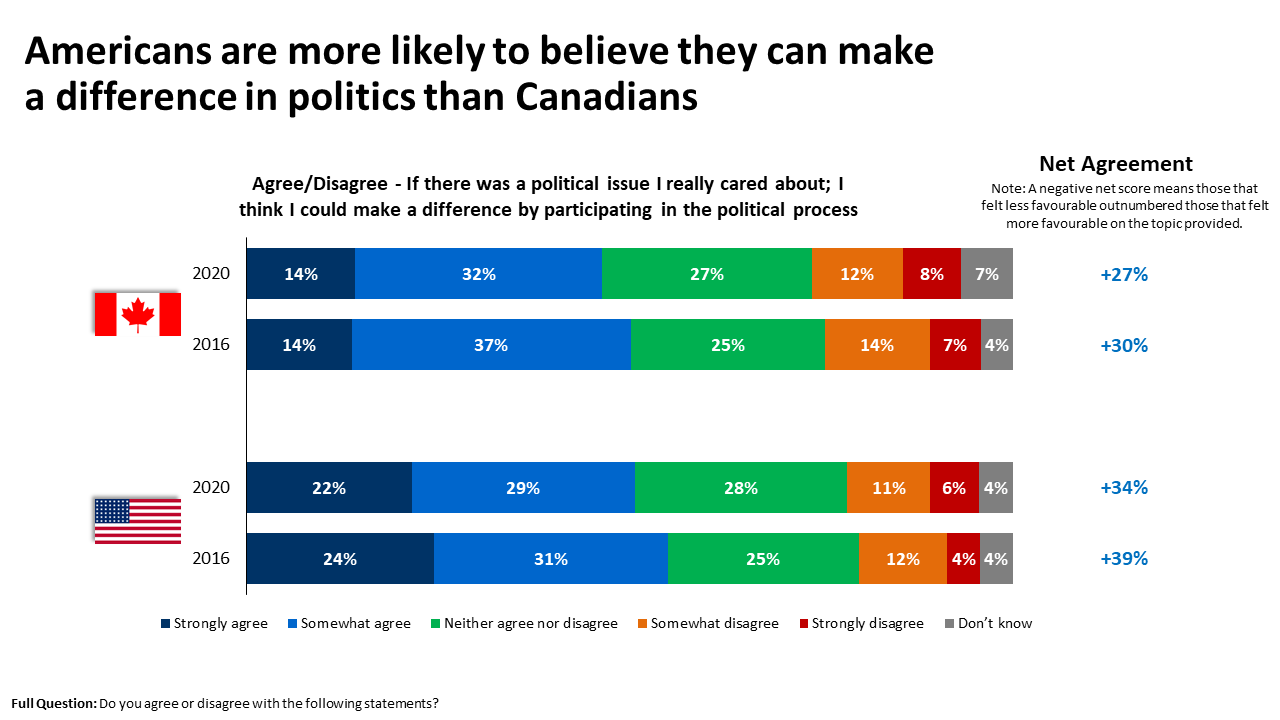
- Canadians (71%) are more likely to say immigrants should adapt to their new country than Americans (62%). The two countries are similar on whether they view immigrants as a threat to traditional customs and values while Americans are more concerned that immigrants might take jobs away.
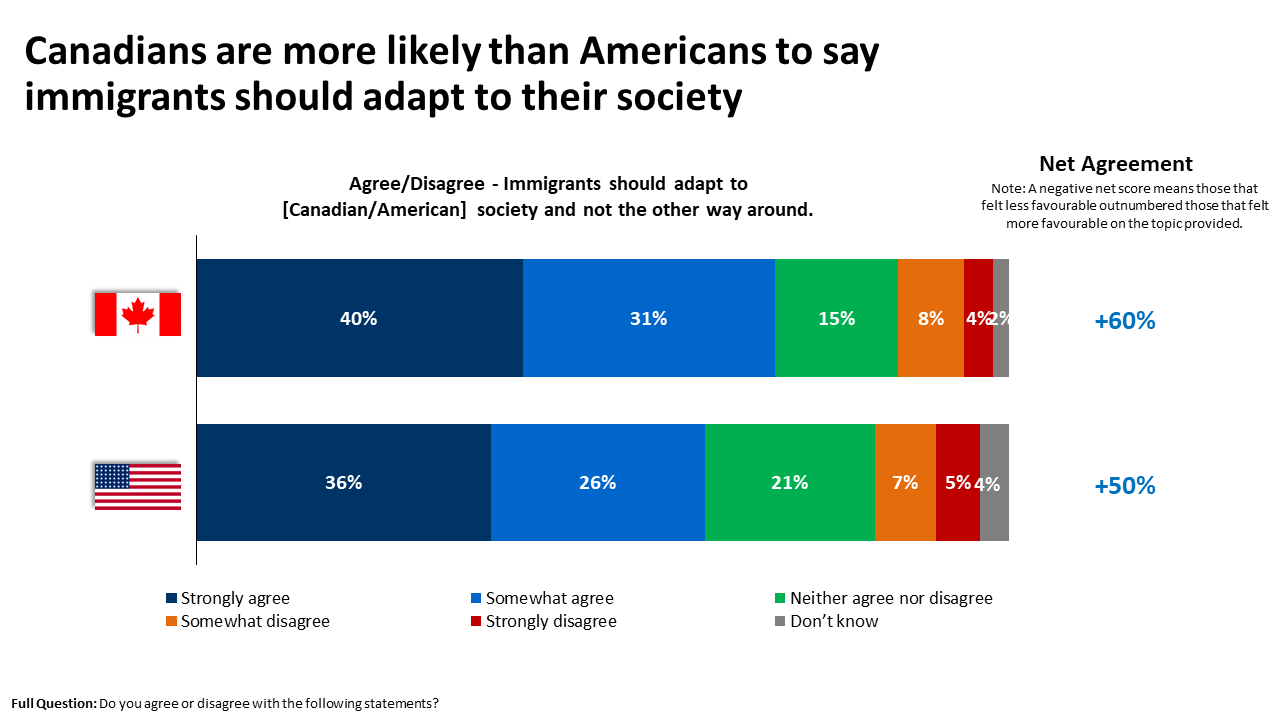
- Americans are more passionate in their commitment to deal with discrimination with 26% of Americans say much more should be done for minorities compared to 20% of Canadians. Americans are also more likely to take discrimination seriously as a problem and are more committed to allowing religious minorities the freedom to wear clothing associated with their beliefs such as a headscarf.
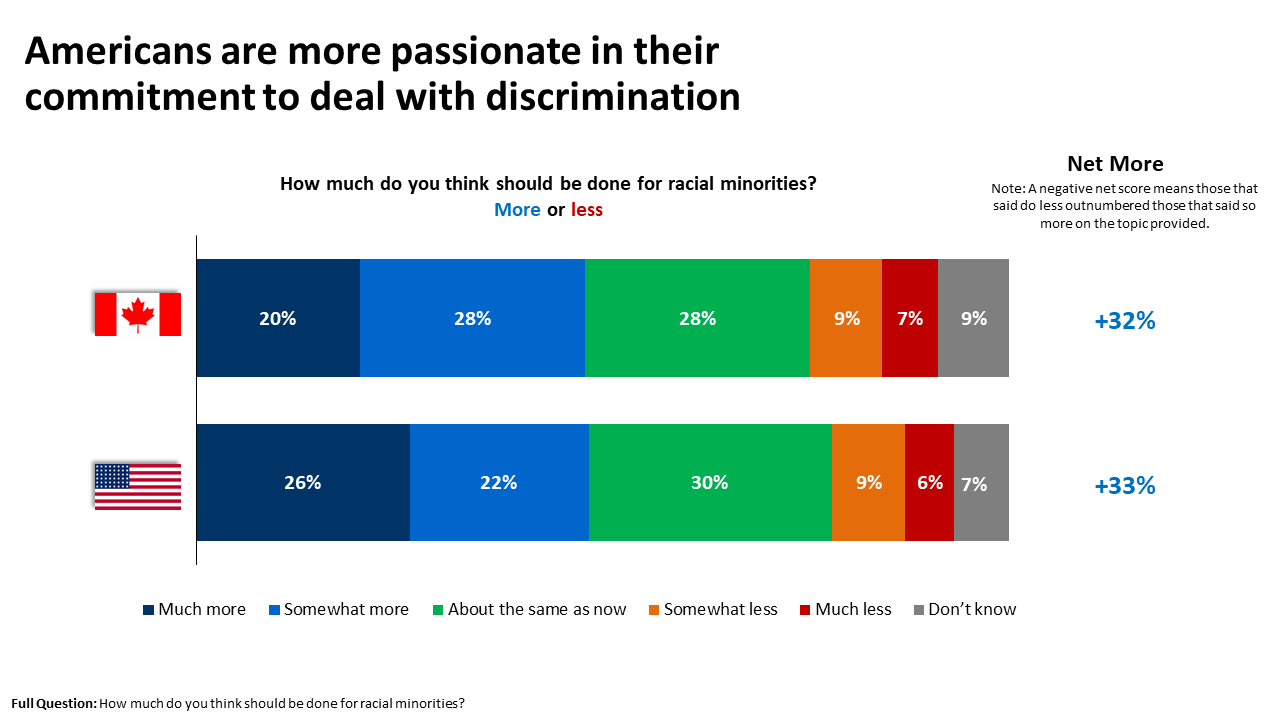
- Majorities in both Canada (51%) and the US (59%) agree their country needs strong, determined leaders who will destroy the negative forces that have taken us from our true path and silence the trouble makers spreading bad ideas. This type of authoritarian attitude is not just a story about the European right, it is a reality here in North America. Donald Trump approval rating after four years of cultural battles makes more sense in light of this attitude.
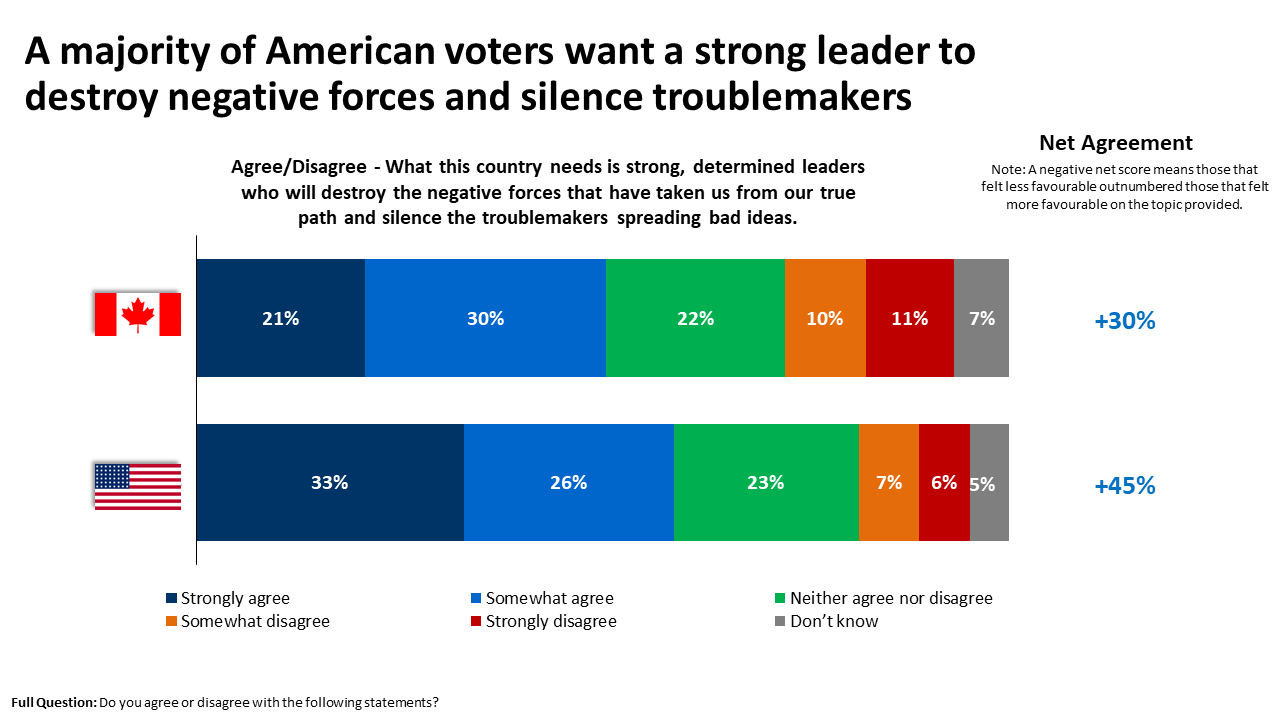
For more information and detailed results, read the full report here.
Methodology: Results for this study come from two online surveys of American registered voters and Canadian eligible voters. Both surveys were in field from September 29, 2020 to October 6, 2020. The American survey has a total weighted sample size of 1,000; the sample was weighted by age, gender, region, education, race, and urban/rural. The Canadian survey has a total weighted sample size of 1,500; the sample was weighted by age, gender, and region. See the full report for detailed methodology.


